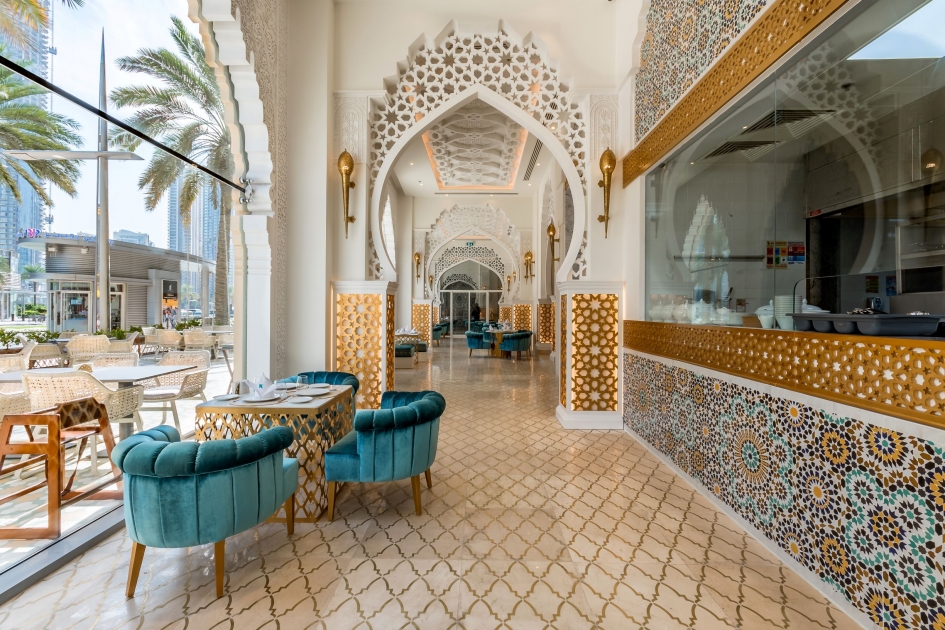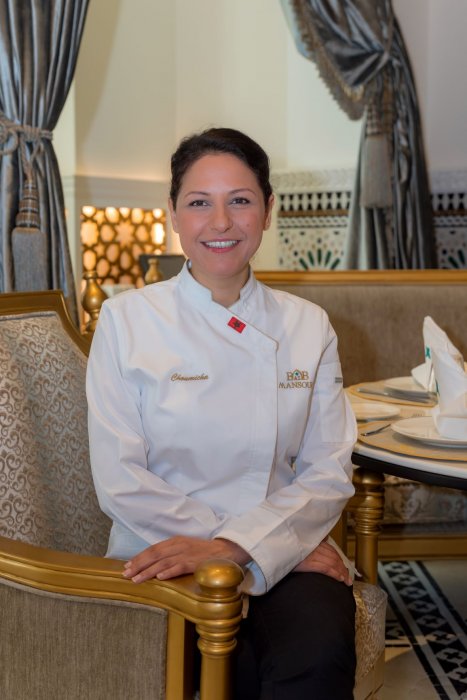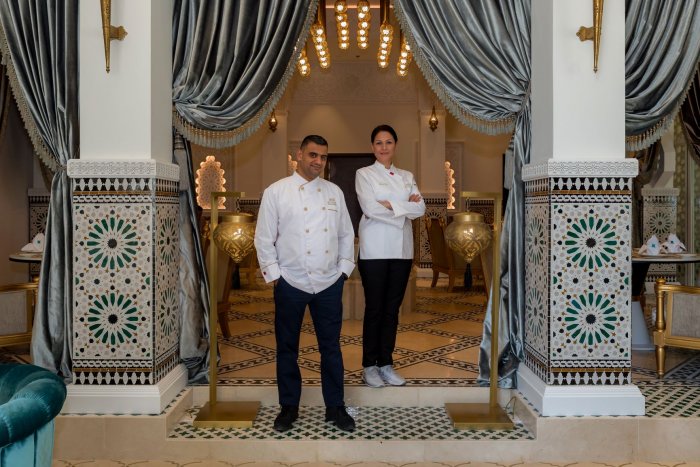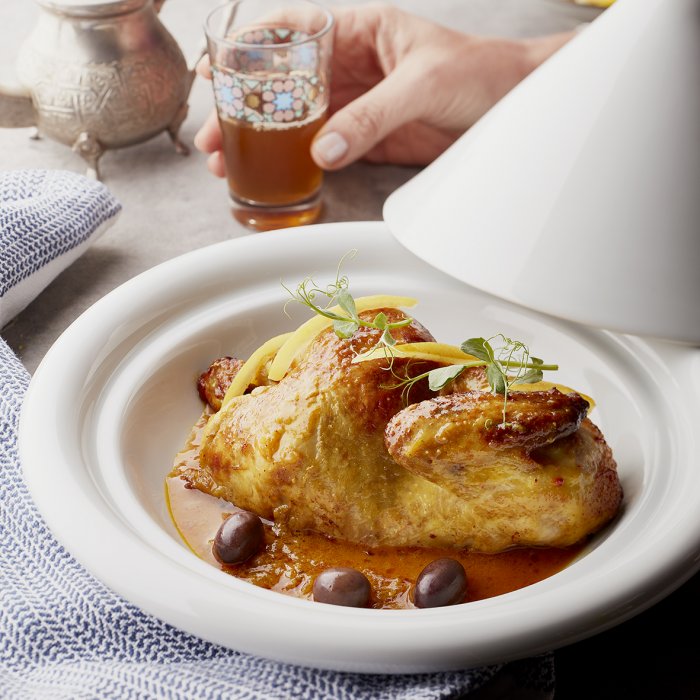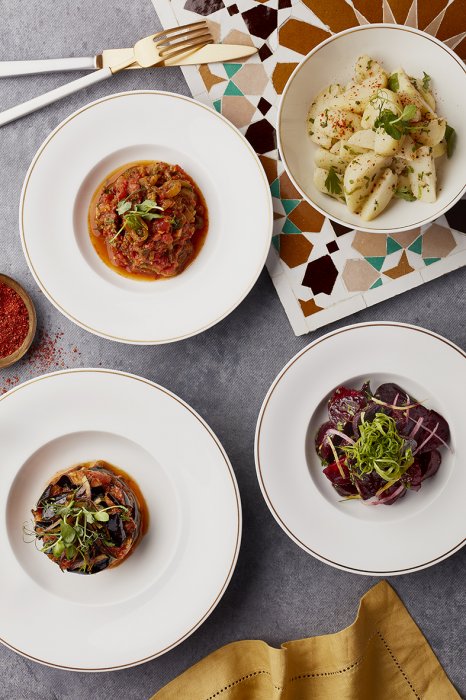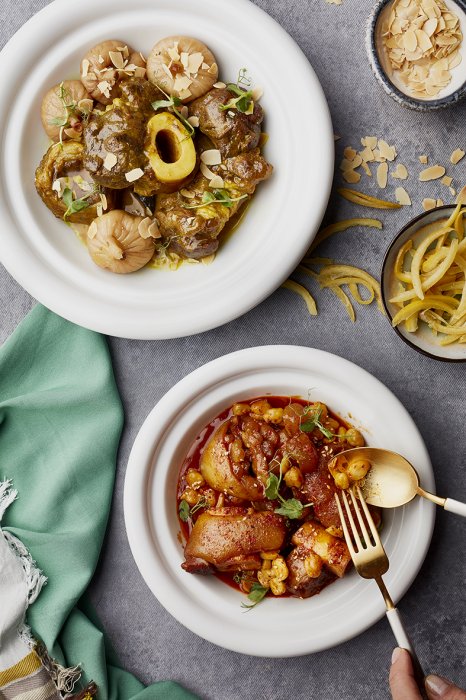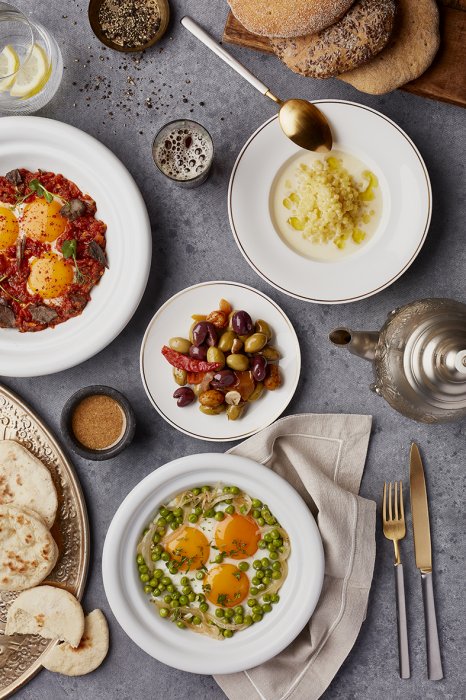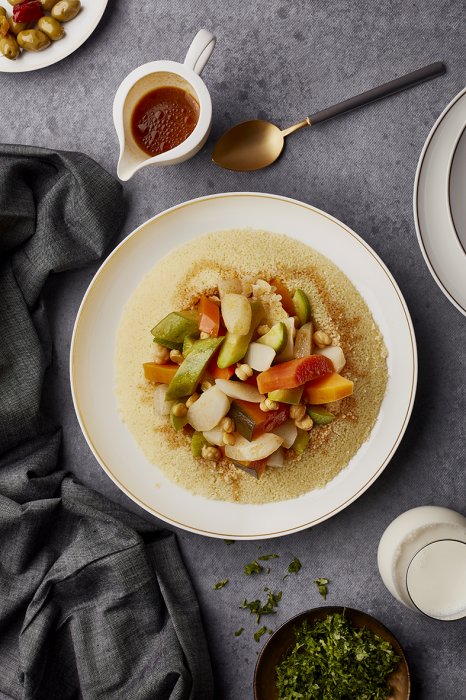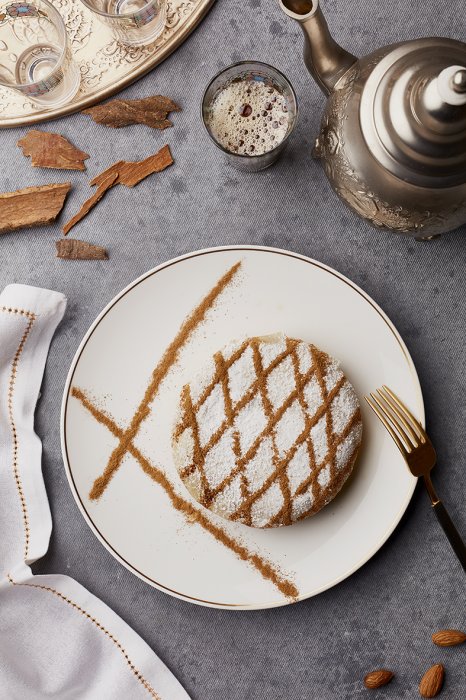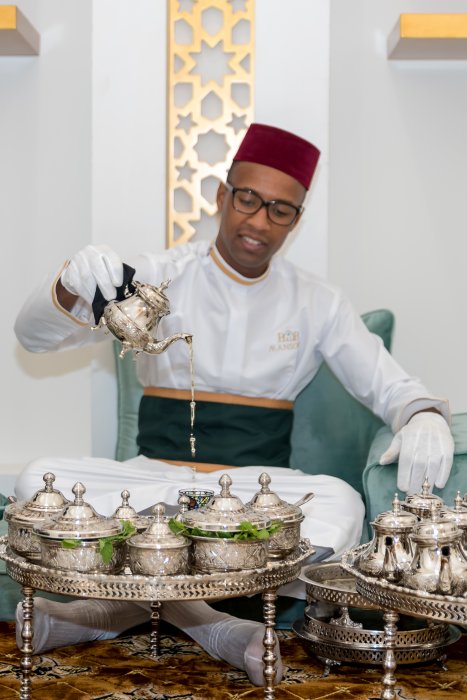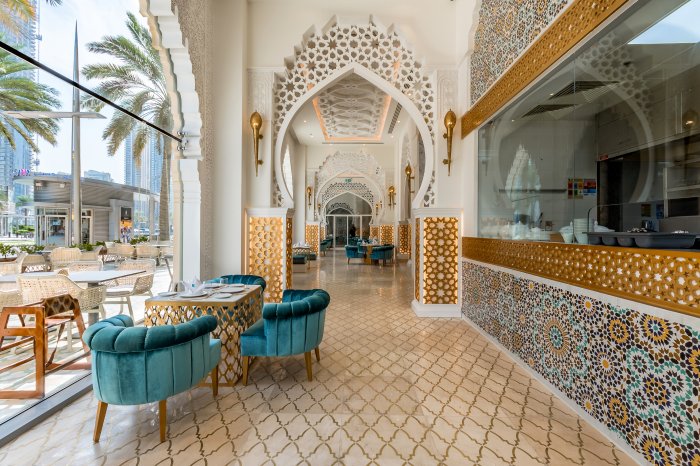
Bab Al Mansour…Gateway to Authentic Moroccan Cuisine for the First Time in Dubai
Chef Choumicha Chafay Presents Traditional Recipes and Flavors Evoking Moroccan Heritage
Bab Al Mansour, Dubai’s first restaurant specializing in Moroccan cuisine, presents a wide array of unique flavors, dishes and cooking styles steeped in traditions as old as time. The cuisines and atmosphere of Bab Al Mansour evoke a sense of both heritage and opulence, befitting of its namesake Bab Al Mansour—one of the Arab world’s most significant historical landmarks built in the city of Meknes. Just as the structure has withstood the tests of time by maintaining its original design since its construction during the time of Sultan Moulay Abdullah in 1732; the food at Bab Al Mansour maintains the use of traditional recipes using only Moroccan-sourced, organic ingredients.
Shipped from the finest farms in Morocco, the seasonal ingredients are mindfully prepared in accordance to the menu that has been supervised and designed by world-renowned Moroccan Chef Choumicha. Staples found in Moroccan cuisine often include almonds or other nuts and combinations of sugar and salt. Fruits like apples, pears, dried plums, dried figs, and raisins are also common ingredients or garnishes. Moroccan cuisine is also known for using olive oil and different spices for each dish, in addition to argan oil, preserved lemons, and olives. The restaurant’s true objective is to accentuate the unique ingredients and flavors of Moroccan cuisine for the first time in Dubai.
Executive Chef Ahmad Al Fakir said the Moroccan dishes available at Bab Al Mansour are authentic and bear the signature of Chef Choumicha, the most famous cook in Morocco renowned for her experience and in-depth knowledge of the specific cooking traditions per each Moroccan city and region. For Chef Choumicha, cooking isn’t just a career—rather, it is a passionate love affair. She believes that no cook will ever be successful if they don’t breathe each flavor or aren’t in love with the magic of a kitchen. The story of Chef Choumicha is one of the finest examples of how a cook falls in love with their hobby and passion.
Chef Al Fakir added that Bab Al Mansour is unique due to the diversity of its dishes and its Moroccan-style cooking methods. Also pointing the restaurant’s use of fresh organic ingredients, vegetables and fruit, Al Fakir said that the nutritional value of the food is always preserved—an essential concept of the restaurant, particularly now that people are becoming more aware of how “food miles” (time and distance from farm to table) affect food quality and taste. “No restaurant can compete with Bab Al Mansour in providing fresher products to its customers,” he said; adding that the restaurant isn't a fad nor a new direction in cuisine as it only pursues authentic flavor in order to maintain its identity.
World-renowned Chef Choumicha expressed her joy in being chosen by Global Catering Services, the managing company of Bab Al Mansour, to design the menu according to her vision of traditional Moroccan cuisine. Chef Choumicha is happy for the opportunity, as the inspirational artistry of cooking has been a long-time tradition of bringing people together, and cultural and creative culinary influences have always been celebrated in the UAE. “While some cultural cuisines may not always appeal to someone from a different culture, food has always been a unique aspect of each community and it accentuates their identity, setting it apart from others,” she said. Today, food plays an interactive role in bringing viewpoints closer together and in creating an atmosphere of social cohesion and tolerance. Culinary arts passionately seek the most prominent similarities and differences, encourage the exchange of ideas, and expedite the convergence and coexistence of trends on all levels.
Bab Al Mansour is marked by its exceptional location opposite the Dubai Opera on Sheikh Mohammed bin Rashid Boulevard in downtown Dubai—the "Heart of the Present World." The restaurant was designed in accordance with the highest standards of quality and sophistication, a stand out within the most elegant kilometer in the world. Evoking the beauty of the Islamic arts in both design and decoration, its large doors and décor were designed specifically for the restaurant, crafted by Moroccan artists. Bearing the essence and history of its namesake Bab Al Mansour in Meknes, the restaurant’s arches receive its visitors just as the most beautiful traditional door and architectural landmark in the Arab world would.
Bab Al Mansour's interior design is marked by its high ceiling, with light illuminating from every angle as if guests were sitting outdoors. Able to accommodate up to 260 diners, the white and gold interior provides the illusion that the restaurant is larger than it truly is. With details immersed in Islamic history from the 14th century Marinid dynasty and designs as diverse as colors found in Moroccan nature, guests dine like royalty. The predominant earth tones and shades of blue, green, purple and orange oft found throughout Morocco, for example, are also found in the restaurant as a complement to the bright and cheerful color of the mosaic masterfully crafted by Moroccan artisans. These colors and tones additionally flow from the dining room furniture to the ceiling, accompanied with a corrugated ceramic floor.
Chef Choumicha
Moroccan chef and show host, specializing in Moroccan cuisine for over 20 years, produced and presented the Moroccan and Arabian cooking shows "Chhiwat Choumicha" and "Chhiwat Biladi." The show takes its viewers throughout various cities and areas in Morocco to find traditional dishes, teaching them how to prepare the cuisine. Recipes combine both traditional and modern elements, considering the cultural aspects and elements pertaining to each region. The show, which features a recipe per episode, has garnered a large audience—particularly women who wish to prepare authentic cuisine for their families. With each season, the show has increased its viewership and rates of audience interaction, marking the trust gained throughout the years from quality recipes and episodes. In response to the traction, producers have added new segments to the show, such as hosting fans in the studio to cook a recipe of their choice.
From Morocco, Chef Choumicha began her journey to a global audience through several cooking shows on the French channel Cuisine TV and wrote several cookbooks in both Arabic and French.
After her success as one of the most famous chefs on local and international levels, she was awarded an honorary certificate and scholarship at the French cooking academy Cordon Bleu during the Gourmet Voice festival for culinary arts in Cannes, France. This was the only Arab participation representing Morocco and all Arabs in the festival which saw the participation of several European, American, and Asian countries.
Chef Ahmad Al Fakir
The executive chef of Bab Al Mansour and member of the Chaine des Rotisseurs, the International Association of Gastronomy, moved to the UAE 18 years ago. He began his career in a Damascene environment focusing on food and beverages, from which he drew inspiration to work as a professional chef. After graduating from the Hospitality Institute in Damascus, he began working as an apprentice chef, creating an innovative assortment of delicious dishes in several famous restaurants and hotels, honing his skills under the watch of several top cooks—to which his skills were readily apparent. In order to acquire more experience, learn about international cuisines, and explore new ingredients and flavors, he moved to Dubai and assisted in the opening of many new restaurants that would go on to win local and international awards, including Siraj, Kahraman, and Qbara. Chef Al Fakir, who is a member of the Emirates Culinary Guild (ECG), is renowned for his deep passion for improving and developing Arabian and Middle Eastern cuisine by creating many recipes, and updating ingredients, presentation and hospitality methods. He strives to serve foods that stand as cultural bridges that connect civilizations around the world, beginning the story with a dish and ending it with a taste that speaks all languages.
Chef Al Fakir has won many awards, including an award for being one of the top chefs in the Middle East in 2015, and an award for distinction in hospitality in the Middle East (head chef in 2018). He also took part in several local and international festivals and competitions related to cooking. Today he supervises a number of famous restaurants, including Diwan Al Hana, Bab Al Mansour, and Verdura.






